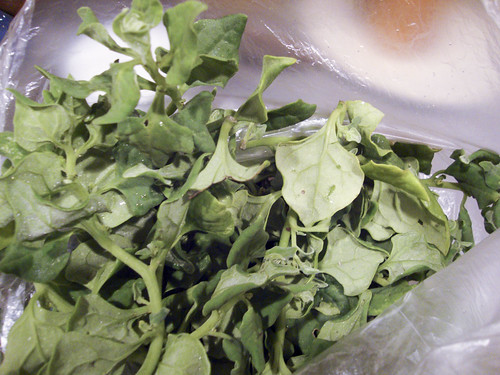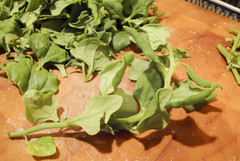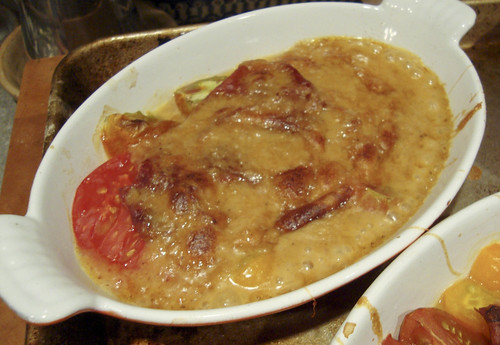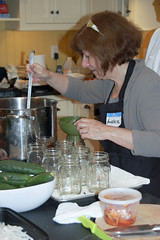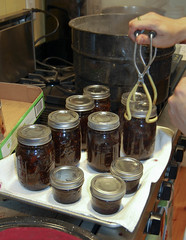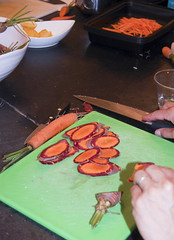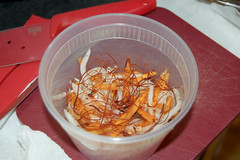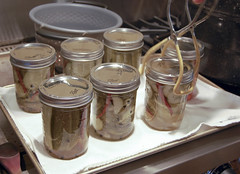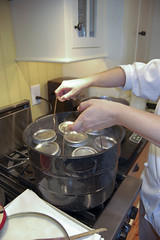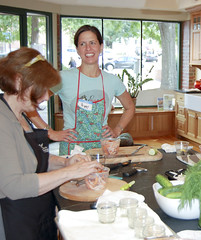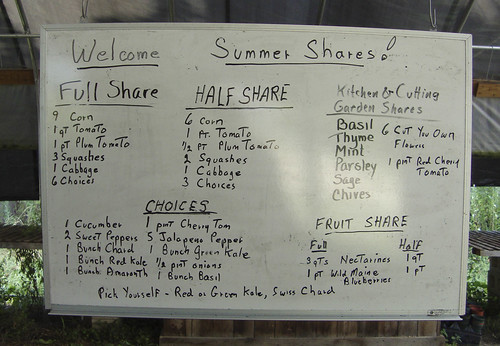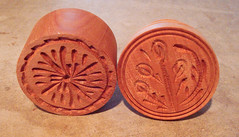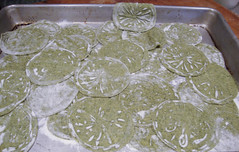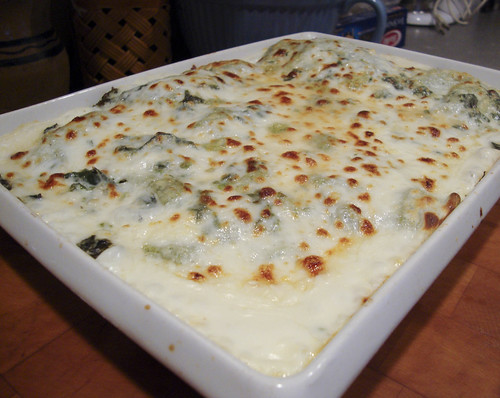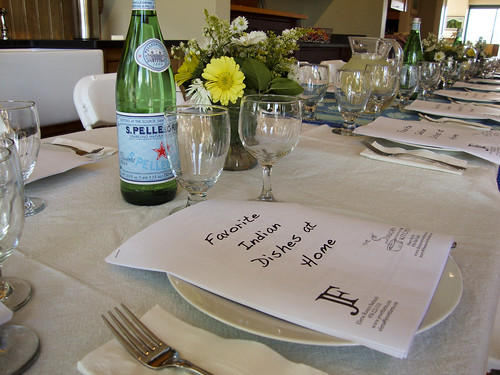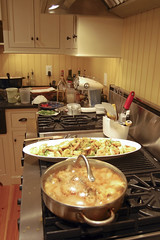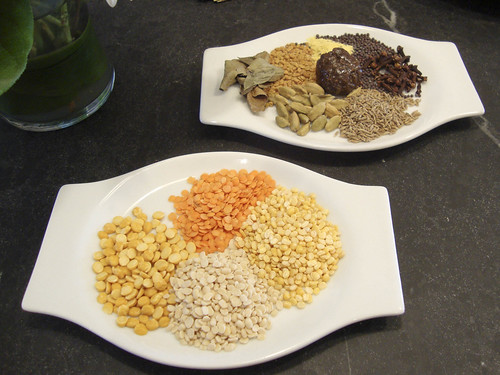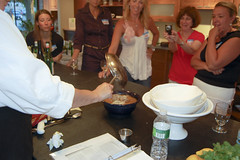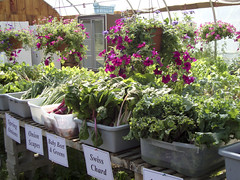I have been dreaming of porchetta lately: a big roast of pork, redolent of rosemary and garlic and wrapped in crispy, crackly pork skin. This is a dish that's easy to get if you live in Italy, or near the eponymous shop in NYC, but up in my neck of the woods, not so much.
So what's a girl to do but take this porky problem into her own hands? Technically I needed what's called a "long middle" (a pork loin with the belly still attached), but my favorite pork supplier Tim Rocha at Kellie Brook Farm let me know that might be a tough cut for him to get. So, I decided to cobble together Frankenpig from a loin, some fatback and a skin-on belly.

I made a rub of rosemary, garlic, black pepper and salt to use for seasoning the roast and got to work assembling the beast: I laid the belly out and rubbed it liberally with half of the seasoning. I laid the loin over it and rubbed on the other half of the seasoning. I took the fatback (I did trim it down as it was really thick, so it ended up with a piece that was about 1/3 inch thick ) and laid it over the top.
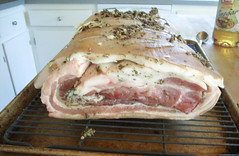
I then did a ridiculously poor job of trussing this amalgam into a cylinder. I put it onto a rack on a sheet pan and left it in the fridge for for a day, to let the rub's herbiness perfume the meat.
Since the roast was so thick (almost 10 inches) I took it out of the fridge an hour before I started roasting it. I followed the basic instructions that Molly Stevens used in her porchetta project.
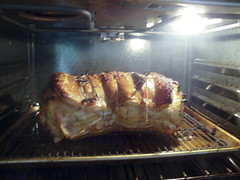 I put the roast into a 475-degree oven on a roasting rack on a sheet pan and let it crackle away for 30 minutes (this will create A LOT of smoke; turn off the smoke detectors first). Then the oven went down to 325-degrees and the porchetta roasted away for another 3 hours.
I put the roast into a 475-degree oven on a roasting rack on a sheet pan and let it crackle away for 30 minutes (this will create A LOT of smoke; turn off the smoke detectors first). Then the oven went down to 325-degrees and the porchetta roasted away for another 3 hours. I popped into the oven every now and then and basted the skin with the fat that was accumulating in the pan. I also siphoned off a lot of this fat as it rendered. This was a necessary chore as a lot of fat rendered off: nearly 2 cups.
While this wasn't my perfect porchetta: it was a little too fatty, the loin on the ends was a little dry and the skin wasn't crispy all the way around. But, holy moly, it was a delicious. The skin that was crisped up was super crunchy and toothsome. The rosemary and garlic flavor permeated the meat and made for a great flavor. While the roast was resting, I roasted potatoes on a sheet pan with some of the rendered fat. We enjoyed our porchetta and potatoes with a fennel salad.
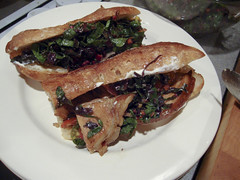 Two days later, we had an amazing sandwiches of gently-warmed porchetta, tomatoes and Swiss chard salad for dinner. Nom nom.
Two days later, we had an amazing sandwiches of gently-warmed porchetta, tomatoes and Swiss chard salad for dinner. Nom nom. Changes for next time:
- Remember to score the skin before you truss the roast - very very hard to score skin without cutting through the trussing twine.
- Don't put the rub on the outside of the roast. I did and it started scorching up right off the bat.
- Trim back a little more fat from the roast: a had a double layer of fat on the top (the loin fat against the back fat was too thick a layer).
- Roll the roast during the skin-crisping stage to make sure that all the skin gets exposed to the heat.
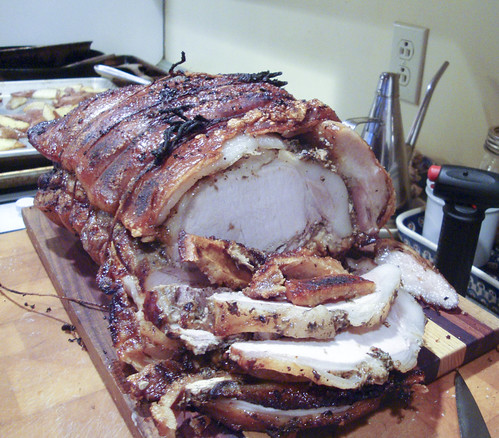
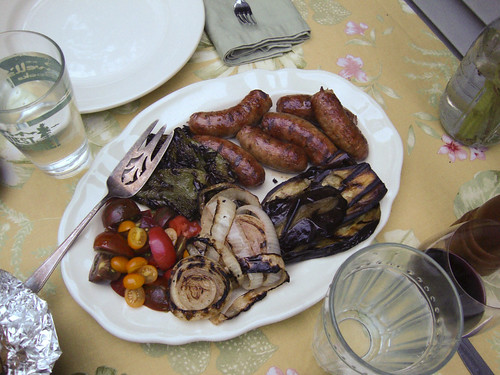
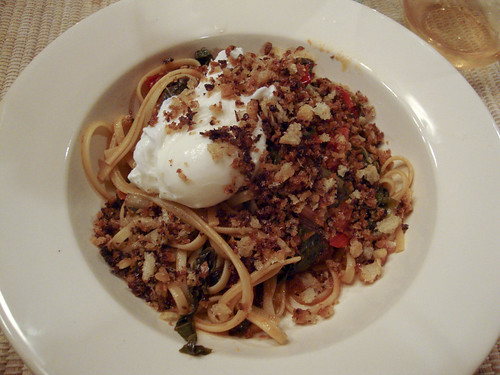
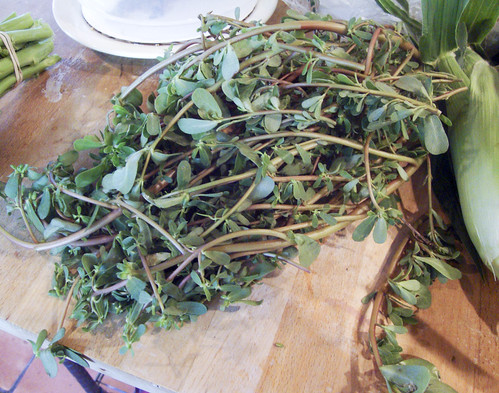
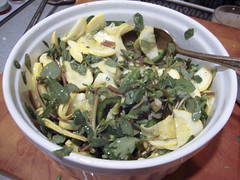
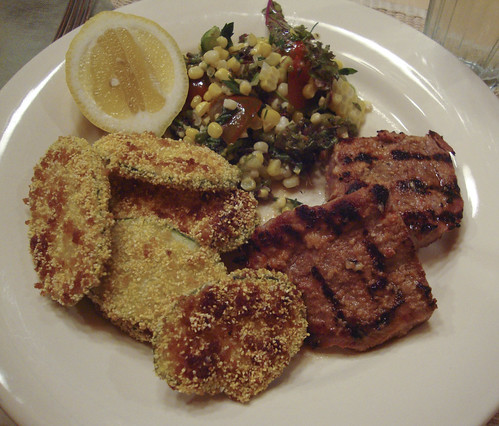
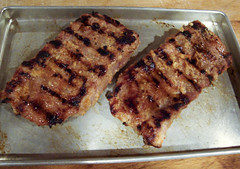

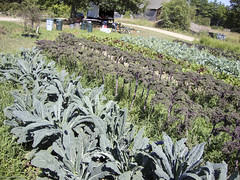 6 ears of corn
6 ears of corn